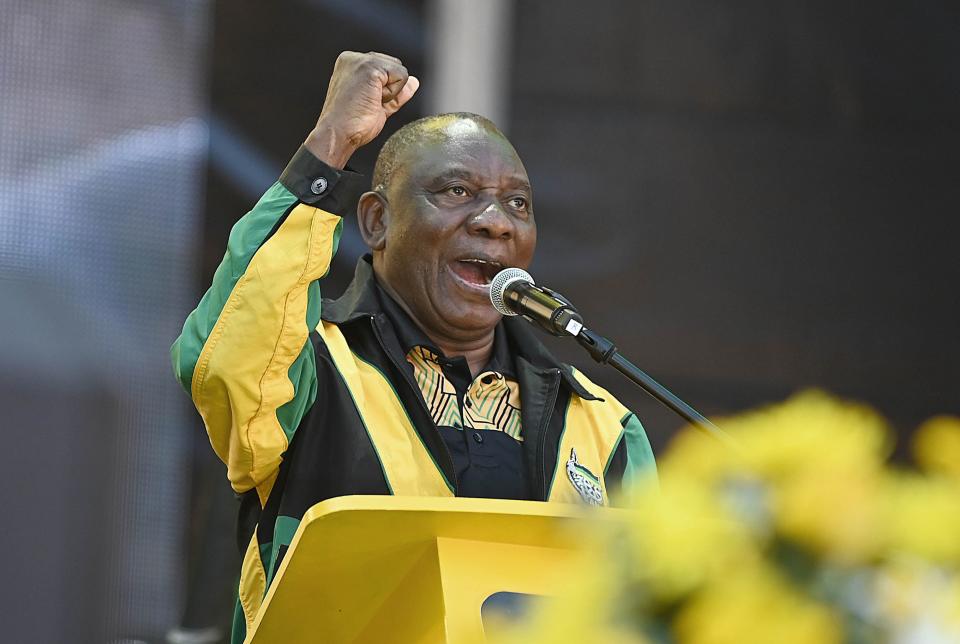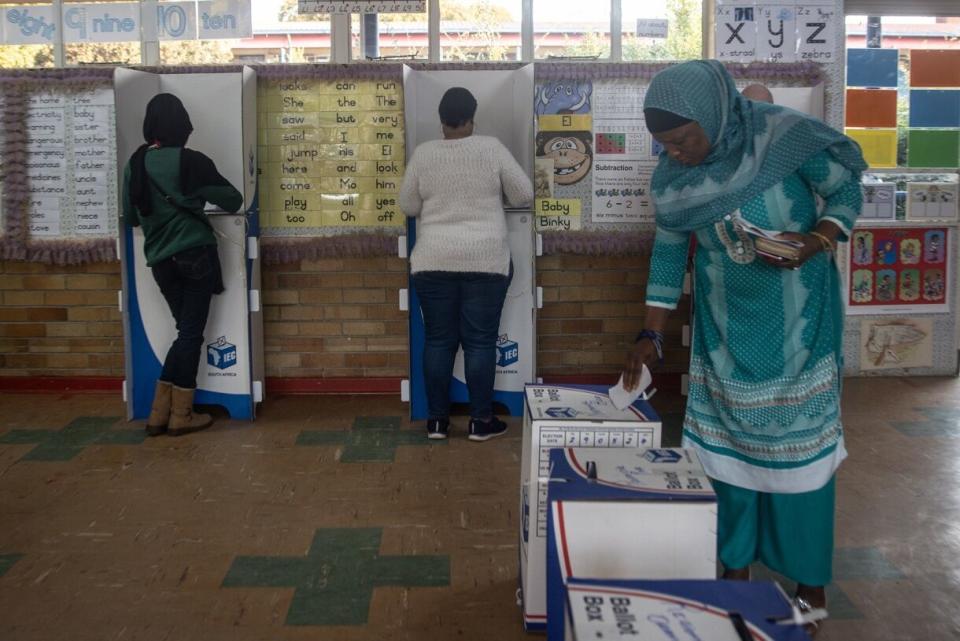South Africa’s Shock Election Imperils Business-Driven Reforms
(Bloomberg) -- South Africa’s business community has been shaken by the country’s shock election result, which could see its partnership with the government crumble and a populist wave sweep aside belated programs to fix everything from power shortages to congested ports.
Most Read from Bloomberg
Homebuyers Are Starting to Revolt Over Steep Prices Across US
Wall Street Billionaires Are Rushing to Back Trump, Verdict Be Damned
Modi Set for Landslide Election Win in India, Exit Polls Show
Saudi Arabia Puts Wall Street on Notice to Set Up Shop in Riyadh
The African National Congress’s dismal performance in the May 29 vote has upended investor forecasts of business as usual as the ruling party has effectively been left with a binary choice: ally with populist parties and largely jettison President Cyril Ramaphosa’s program of economic reform; or seek the support of the centrist Democratic Alliance, its biggest political foe over the past two decades.
Ramaphosa’s allies are already pushing him to partner with the business-friendly DA. But the ANC could be drawn to the leftist Economic Freedom Fighters and the uMkhonto weSizwe Party — led by its former youth and national leaders, respectively — which include many disillusioned former ANC members and trade on its history.
An alliance with either “would create a hurricane, a tsunami in business sentiment,” said Martin Kingston, chairman of the local unit of Rothschild & Co. and chair of the steering committee of Business for South Africa. “We have to have a counterparty with the same level of commitment as the current administration.”
Sign up here for the twice-weekly Next Africa newsletter
Business leaders and Ramaphosa’s supporters argue that their partnership is bearing fruit. But little has trickled down to ordinary South Africans, who contend with some of the world’s highest unemployment and crime rates. The economy grew by an average of less than 1% a year over the past decade, and many people have grown disillusioned with the ANC’s failure to fully address apartheid’s legacy of racial inequality, a theme that both the MKP and EFF have exploited.
The ANC is projected to garner as little as 40.5% of the vote, losing its majority for the first time since the end of apartheid in 1994. Only days before the election, a survey by research group Krutham showed that more than two-thirds of local and foreign fund managers expected the ANC to form an alliance with minor parties that would have little impact on its decision-making.
That’s no longer an option and investors are concerned it may turn to either or both the EFF and MKP, which is headed by former President Jacob Zuma. The rand has fallen 2% against the dollar since May 29, the most of 16 major currencies monitored by Bloomberg.
Those parties have called for the nationalization of mines and banks — policies that Nelson Mandela dropped before the advent of democracy in 1994 — and large increases in welfare payments. The EFF has demanded that its deputy leader, Floyd Shivambu, become finance minister, and an alliance with either would likely mean Ramaphosa’s departure.
“What I am hearing directly from some of the largest international investors, institutions is that there are three veils that they don’t want pierced,” said Colin Coleman, an adjunct professor at Columbia Business School and a former Goldman Sachs partner in South Africa. “First that the president stays in place, second the integrity of the National Treasury and the fiscal monetary authorities is maintained, and thirdly that the institutions of the constitution remain intact.”
Since taking power in 2018, Ramaphosa has forged a close alliance with the leaders of the country’s biggest companies. That’s led to an influx in investment into electricity generation that is helping ease crippling power cuts, the adoption of a blueprint that could boost private participation in the near-collapsed freight rail and port networks and amendments to immigration legislation that could ease a chronic skills shortage.
Ramaphosa has “been a critical role player and leader in overseeing this process of structural reform, the head of driving the partnership,” Kingston said. “It would be very risky to substitute him with anyone who doesn’t have the credibility and confidence of the market.”
With many of the initiatives yet to be implemented they’ve yet to meaningfully change the country’s economic trajectory and could easily be reversed.
Chief executives of South African companies including Sibanye Stillwater Ltd., Sanlam Ltd. and Sasol Ltd. have worked within the partnership as have leaders of the local units of Anglo American Plc and Toyota Motor Corp.
Bloomberg Terminal clients can click on ELEC ZA for more on South Africa’s elections.
“We are essentially where we are in terms of infrastructure collapse and state company failures because of an approach which has demonized business, and did not see it as a partner,” said Khulekani Mathe, chief executive officer-designate at Business Unity South Africa. “We need a government that espouses policies that recognize the role of the private sector, that’s not anti-business. We would hope that there would be a set of policy positions that the ANC would not be easily willing to give up.”
Most Read from Bloomberg Businessweek
Disney Is Banking On Sequels to Help Get Pixar Back on Track
Israel Seeks Underground Secrets by Tracking Cosmic Particles
US Malls Avoid Death Spiral With Help of Japanese Video Arcades
How Rage, Boredom and WallStreetBets Created a New Generation of Young American Traders
©2024 Bloomberg L.P.




